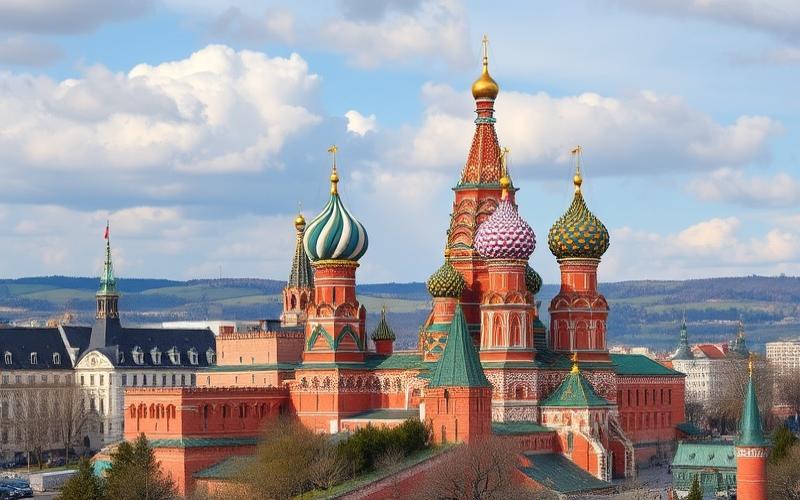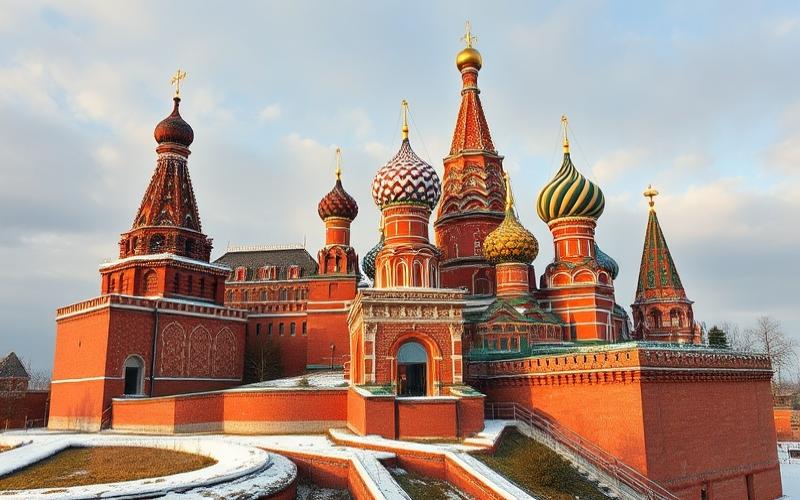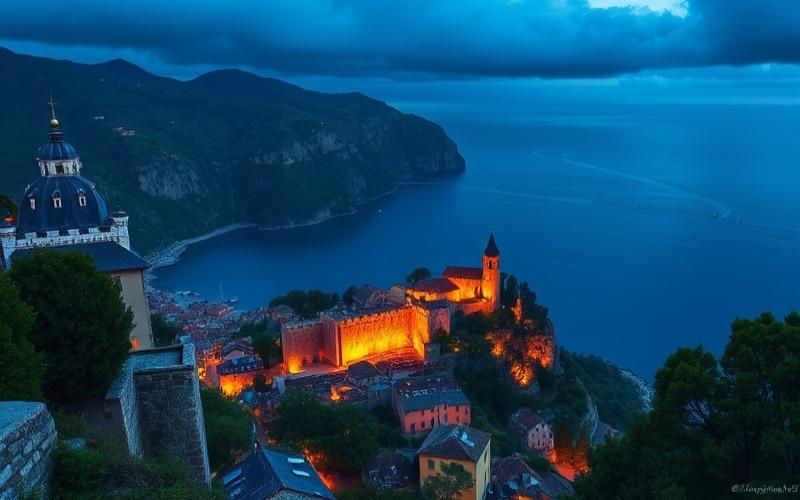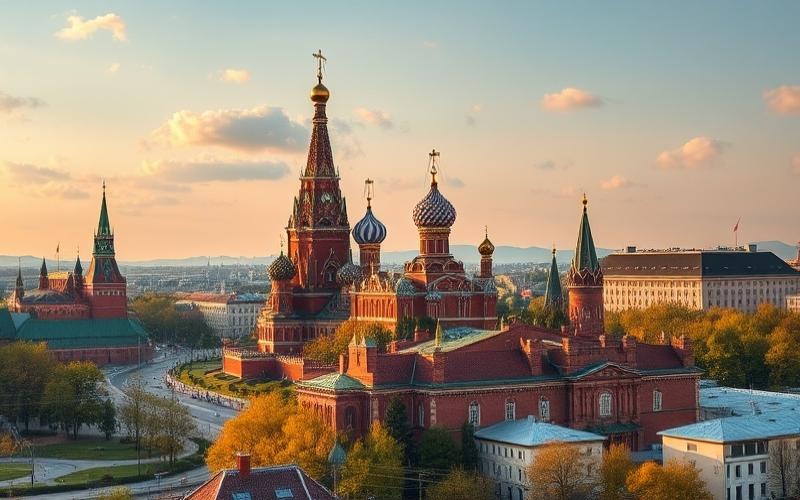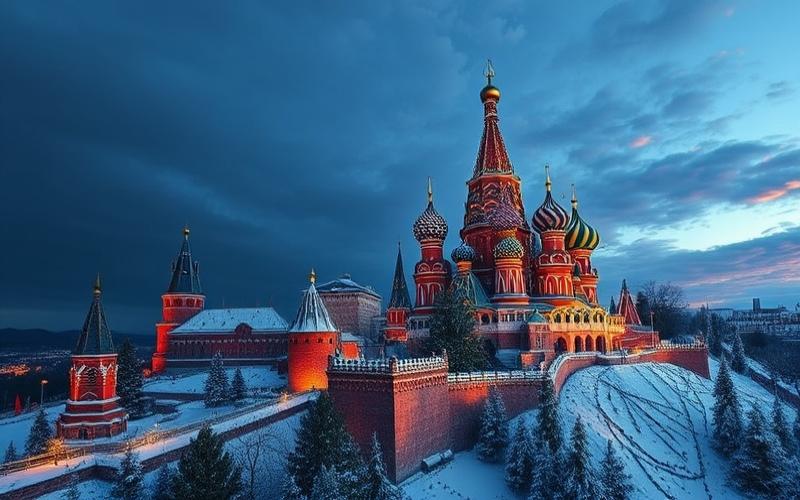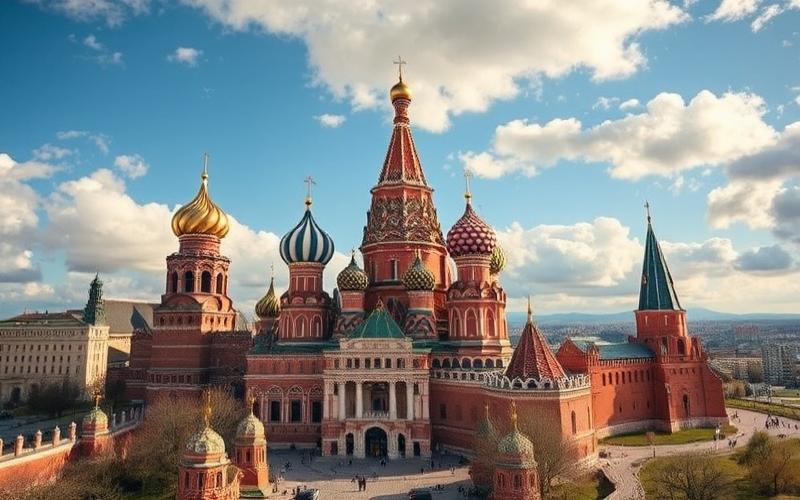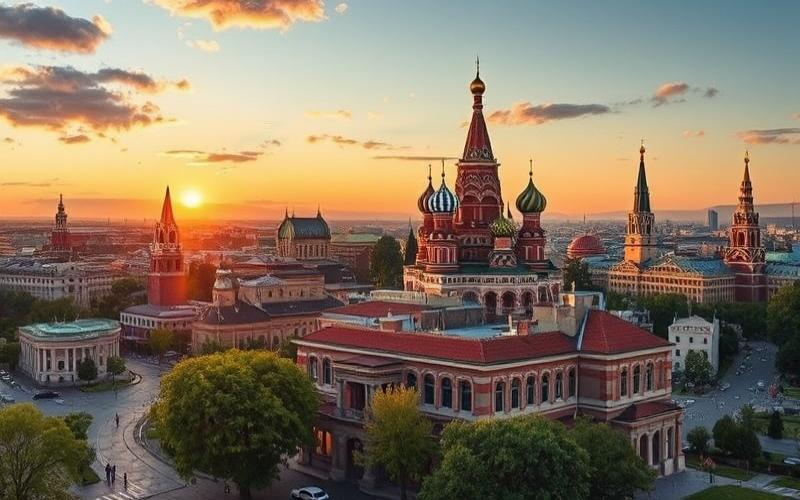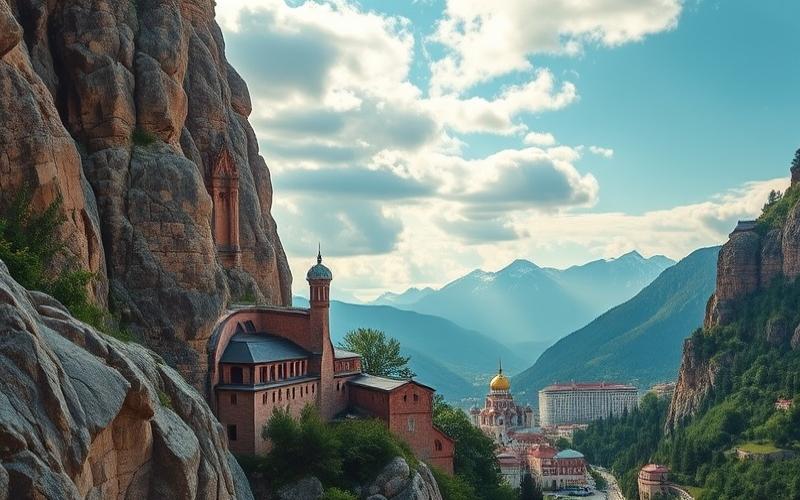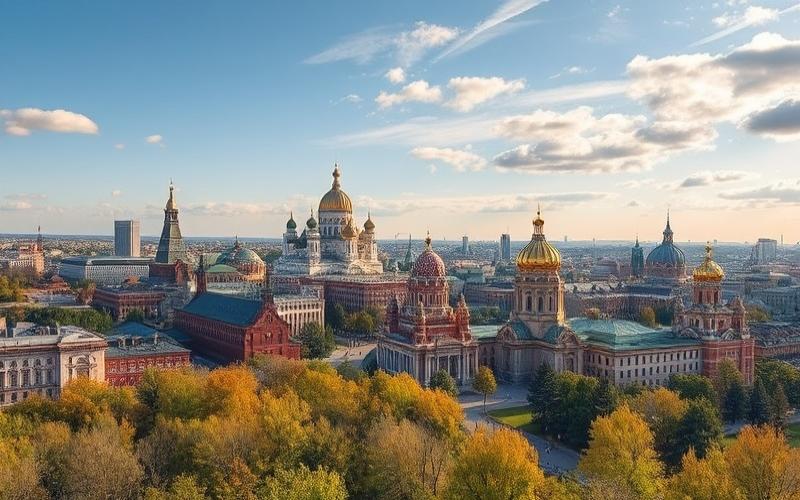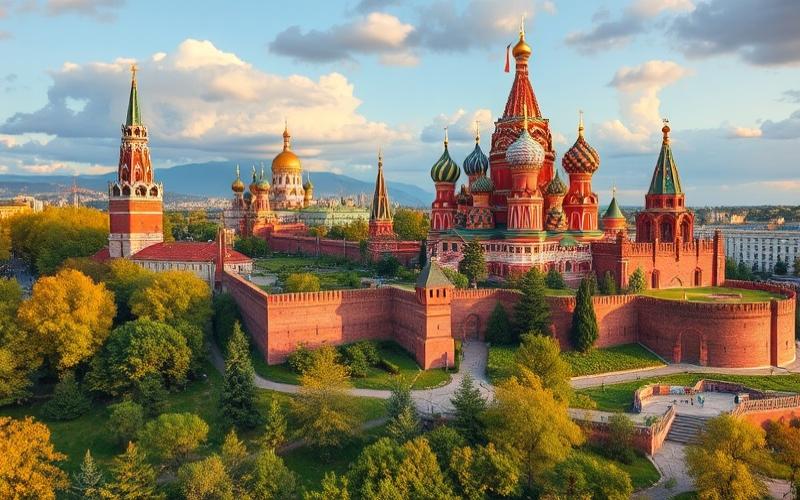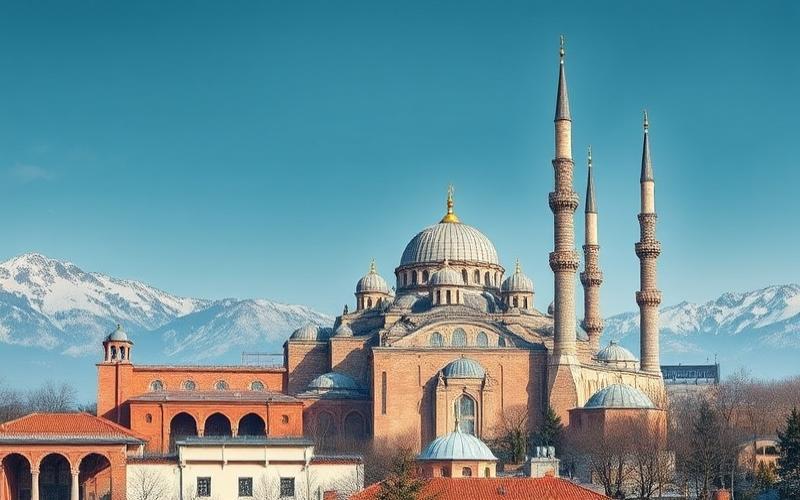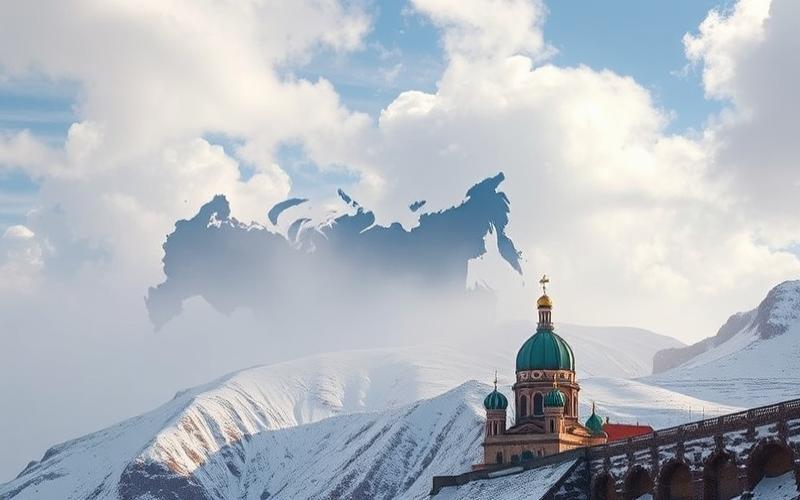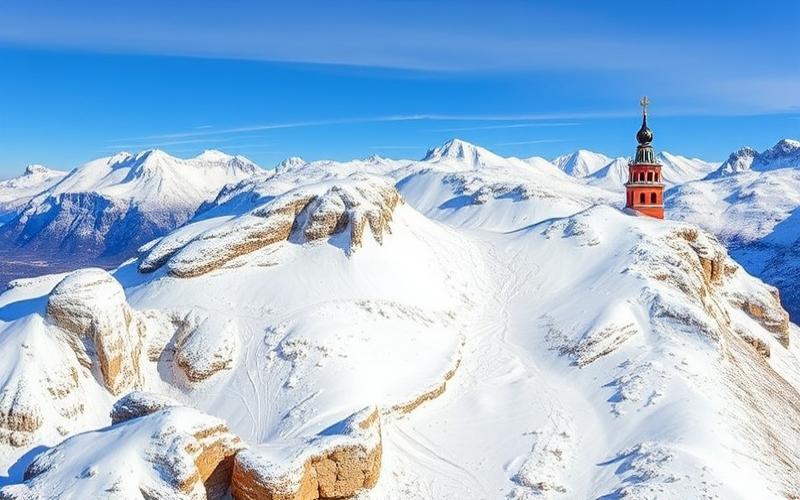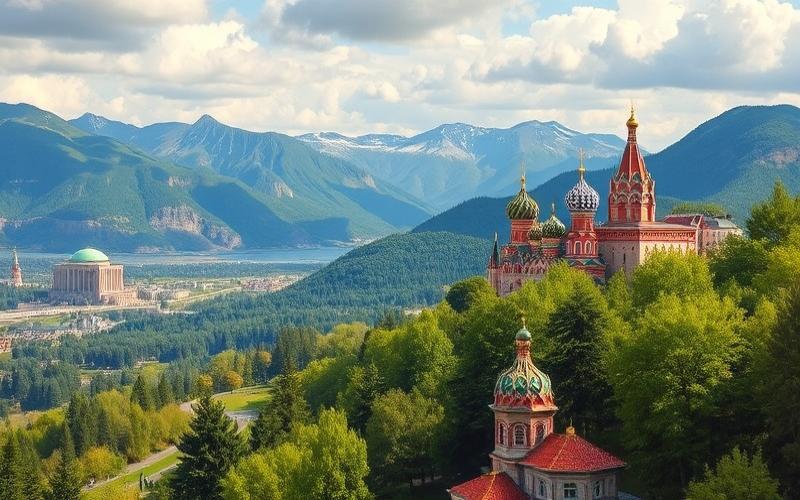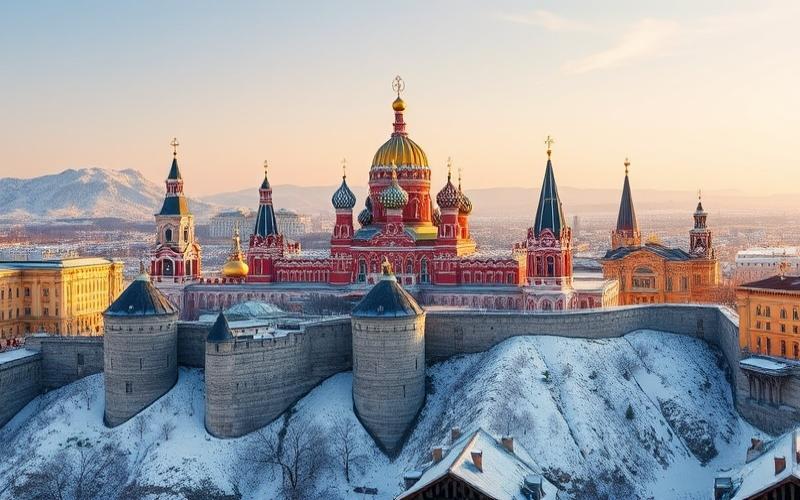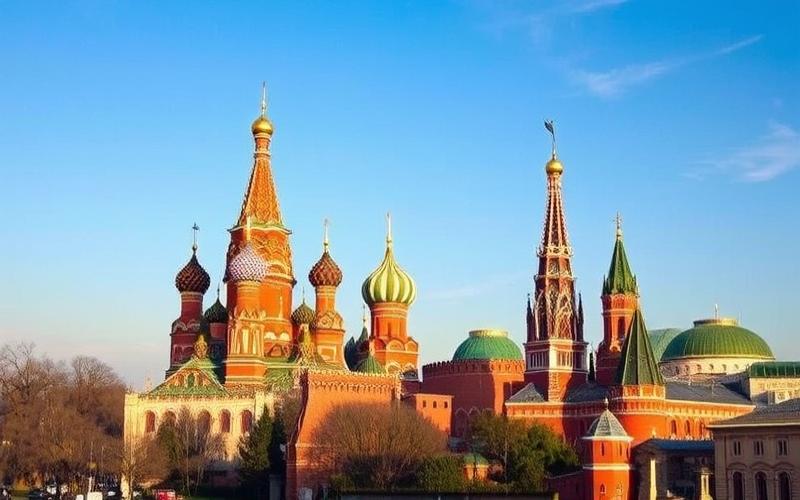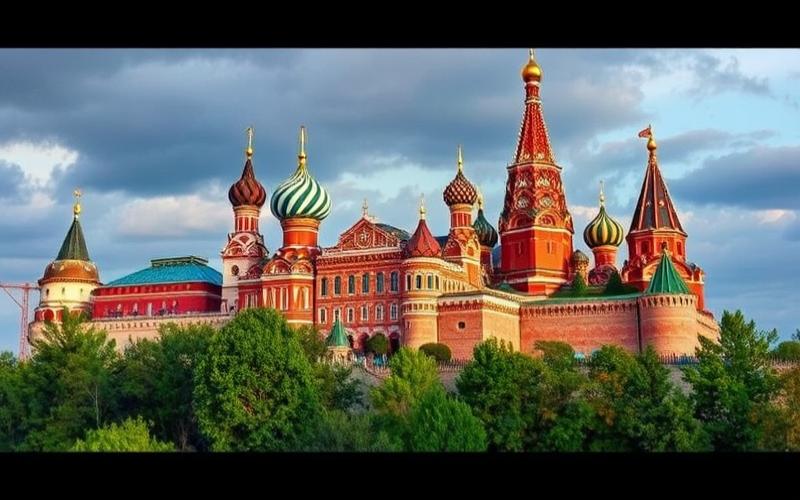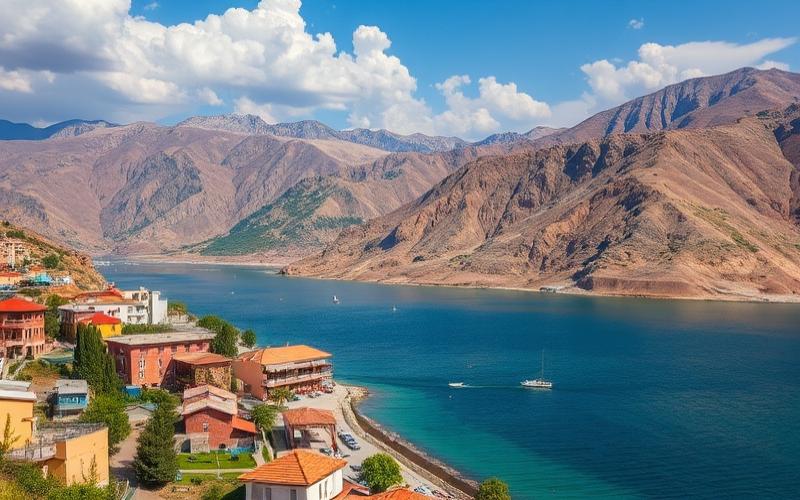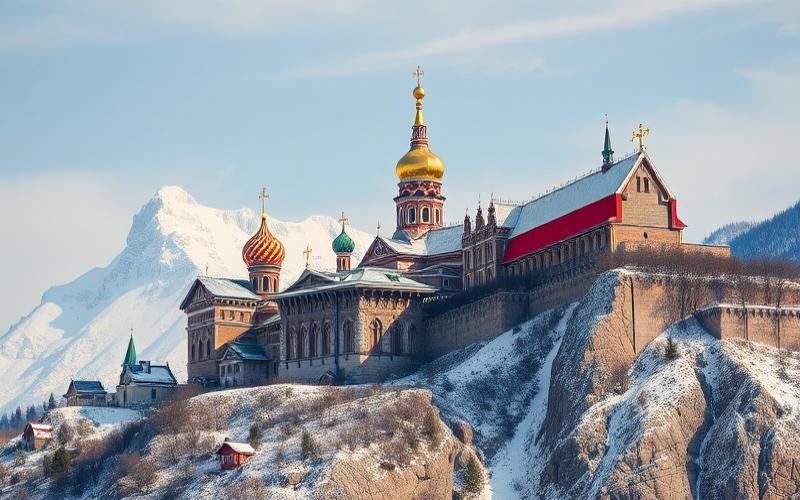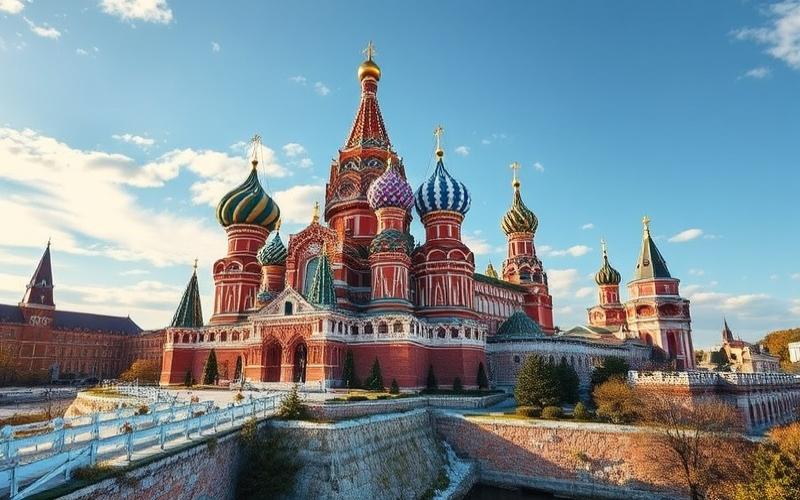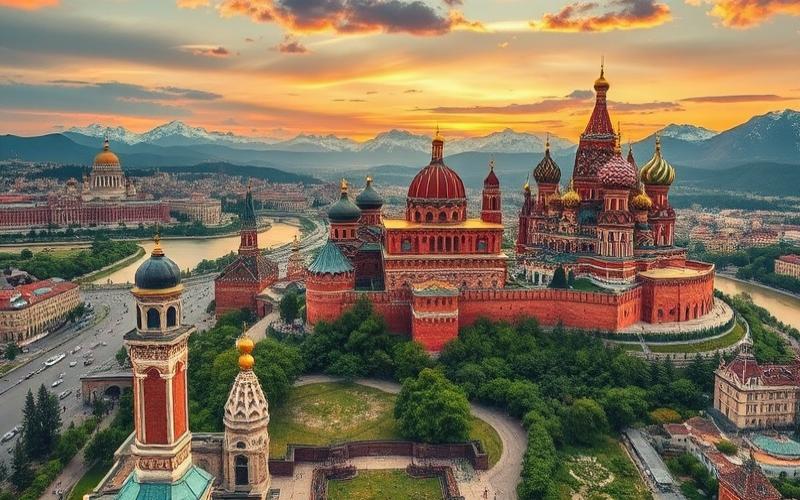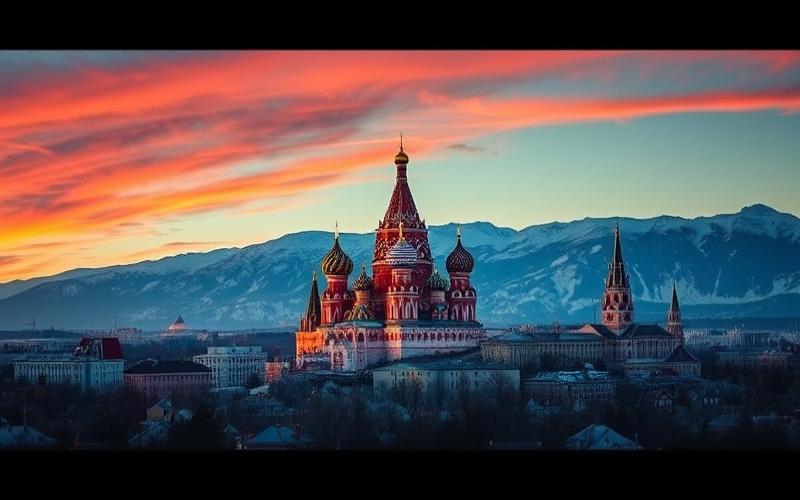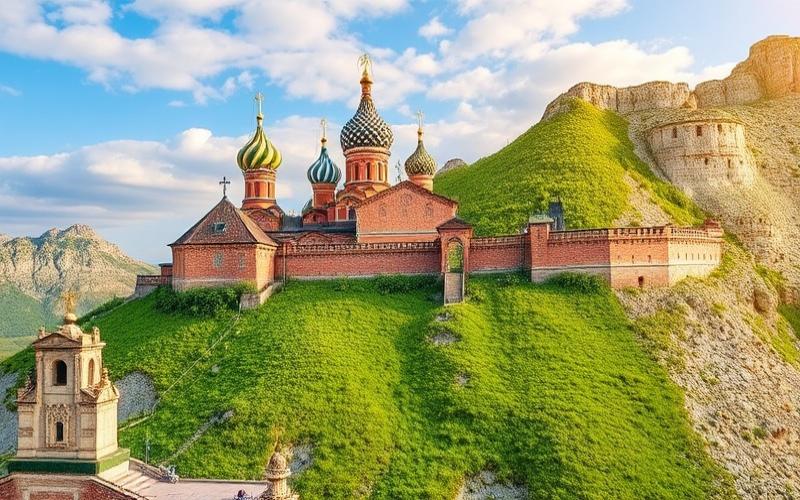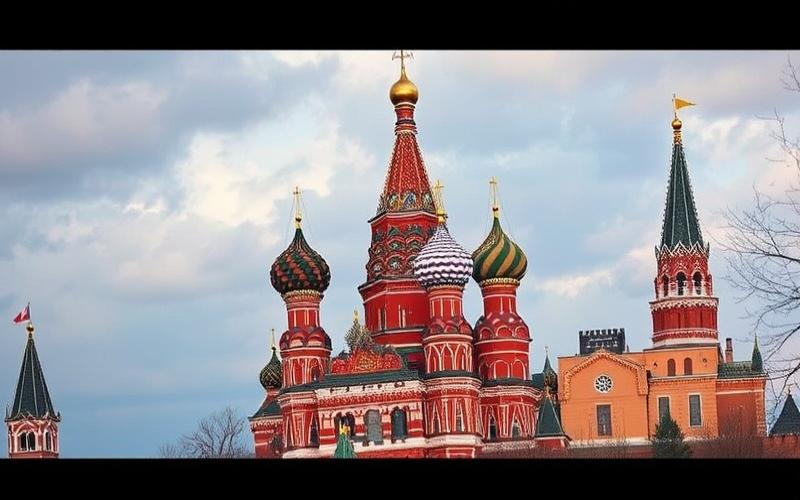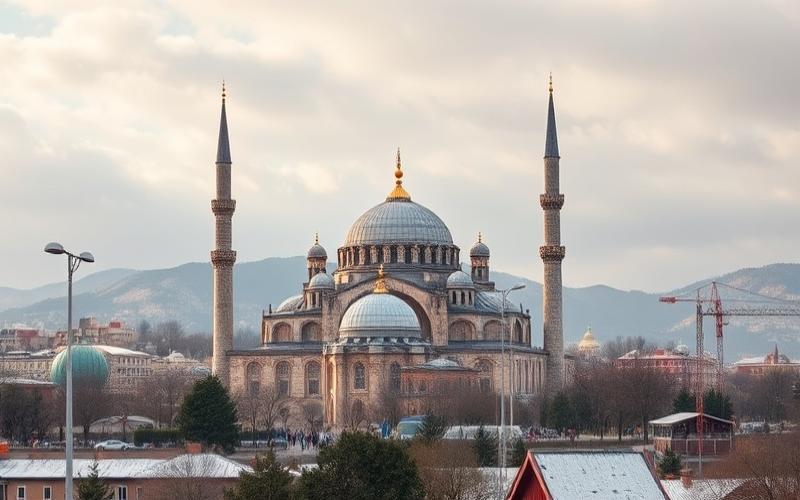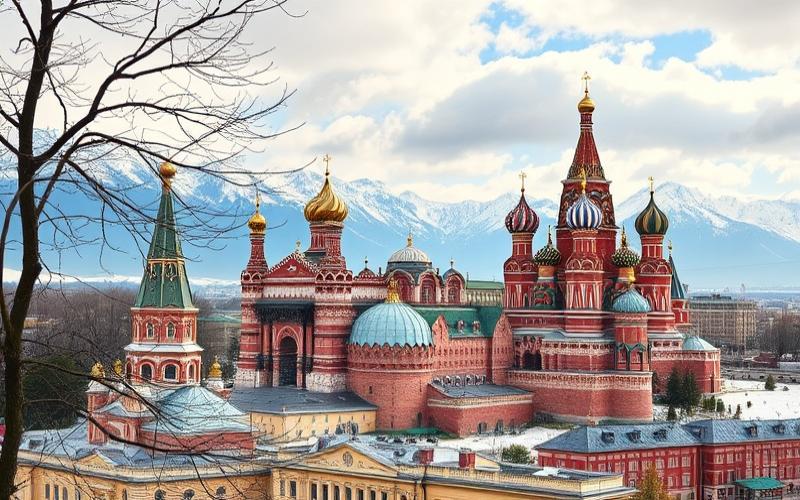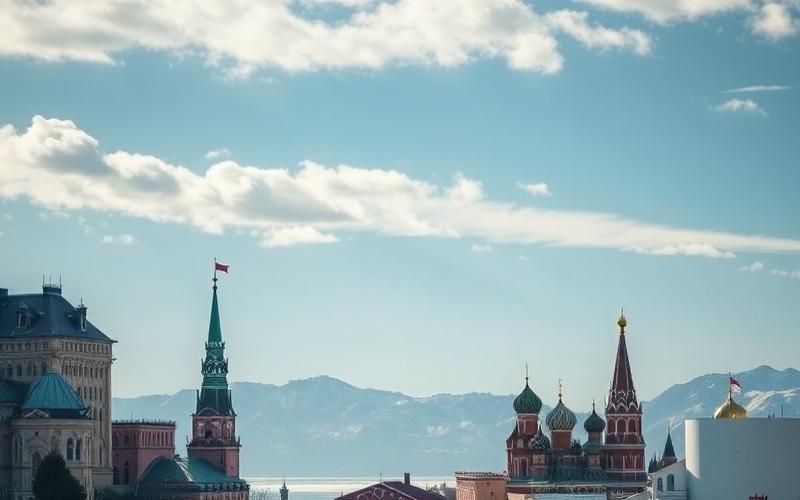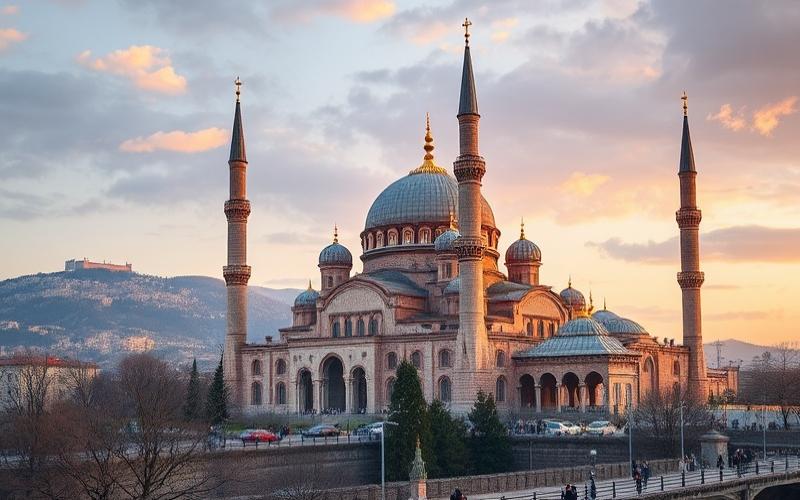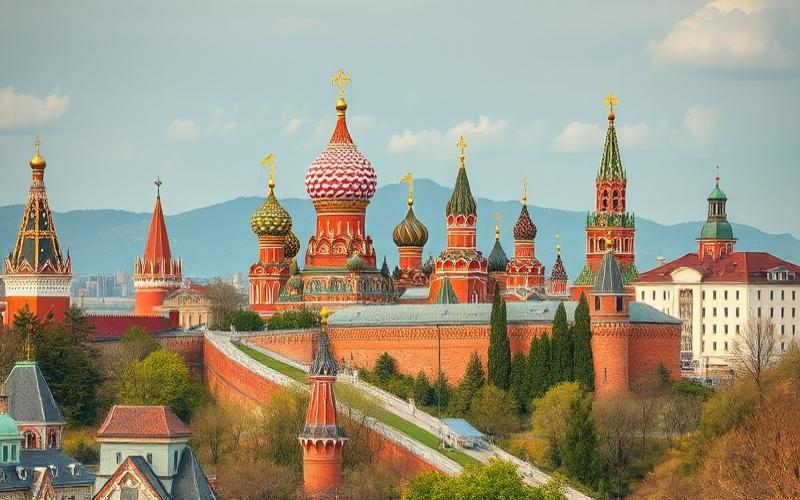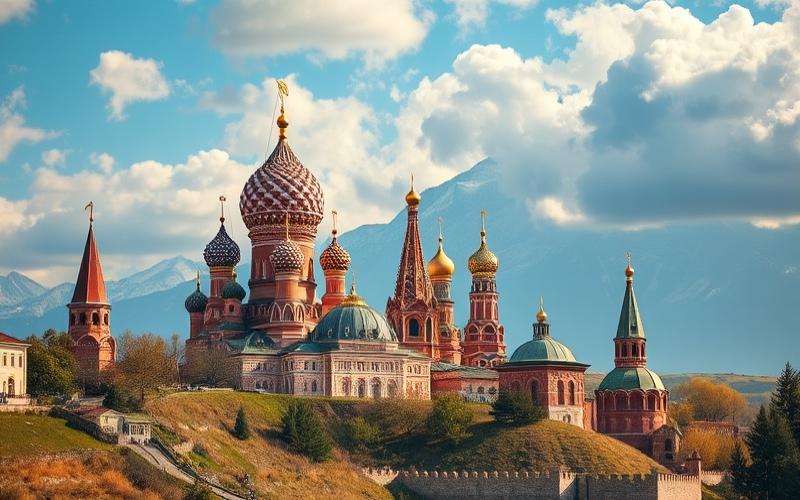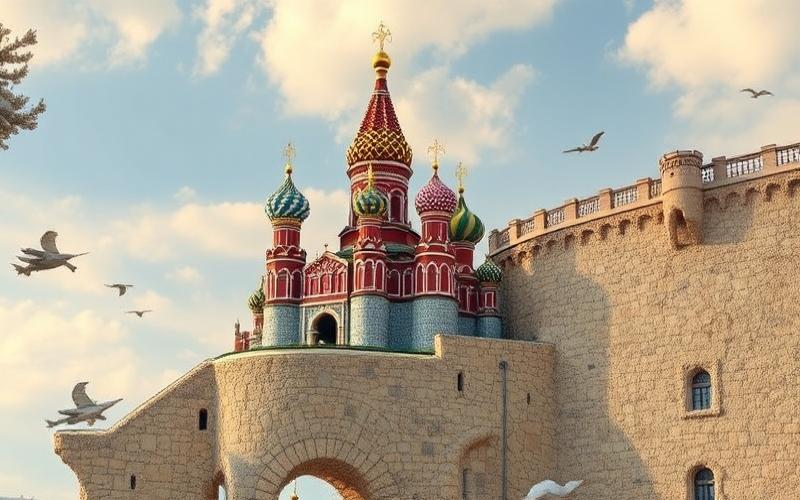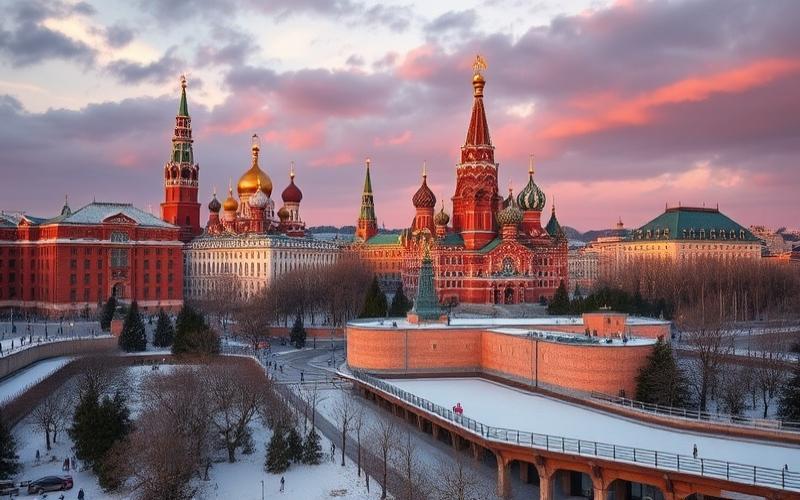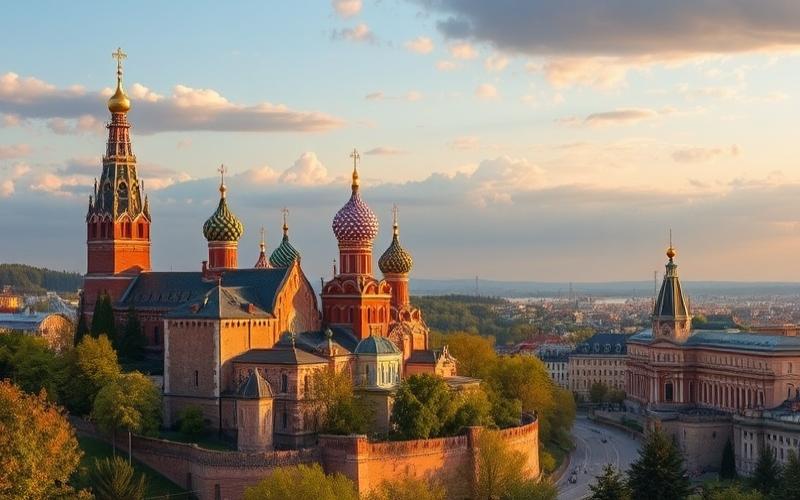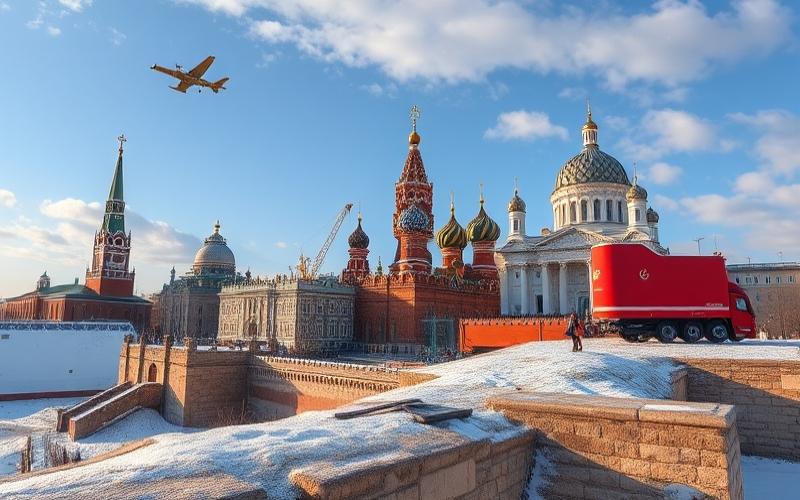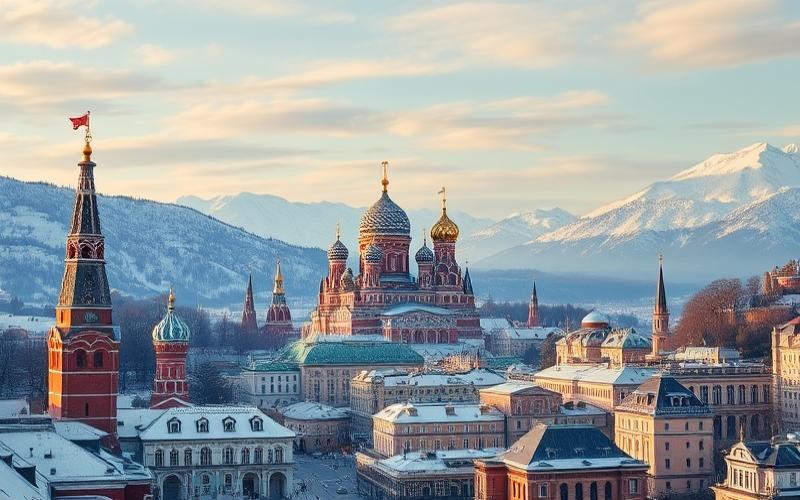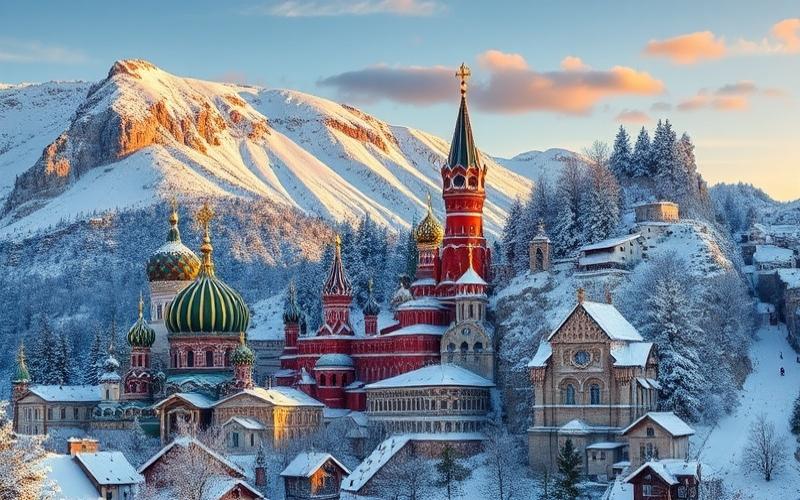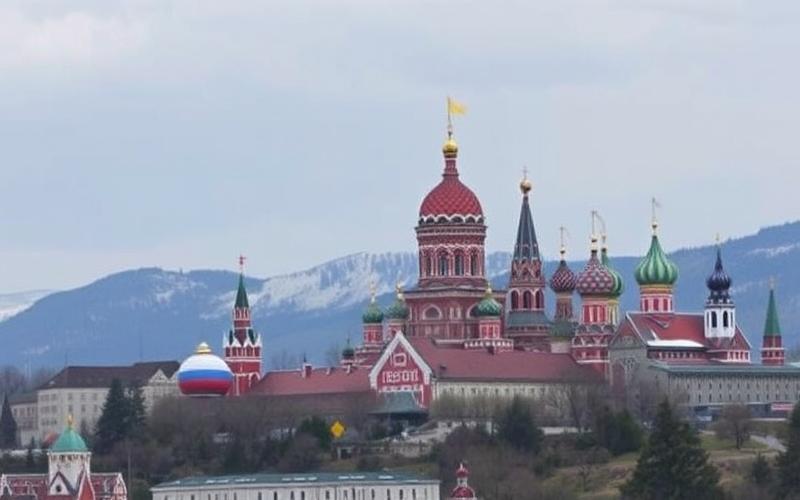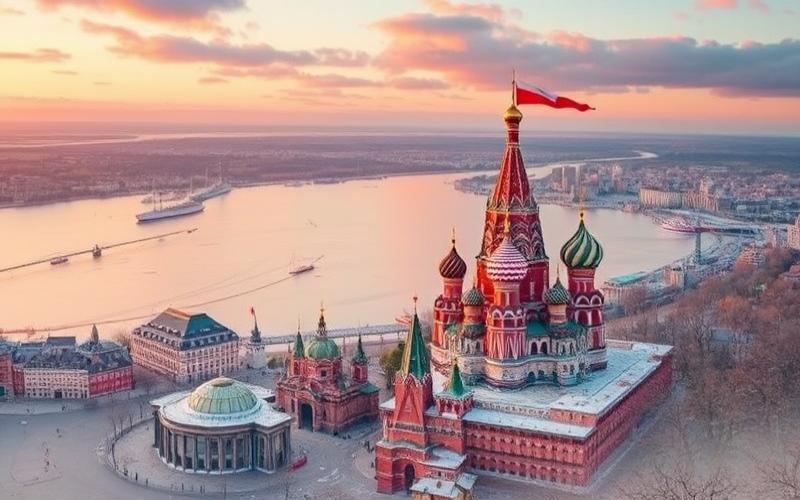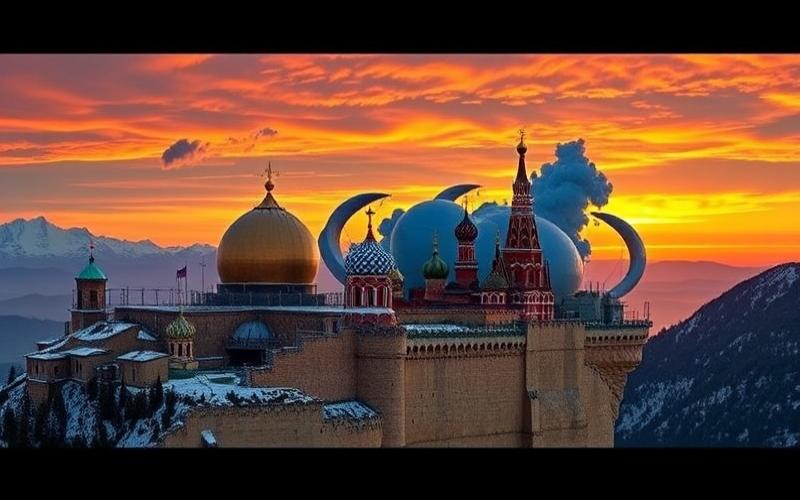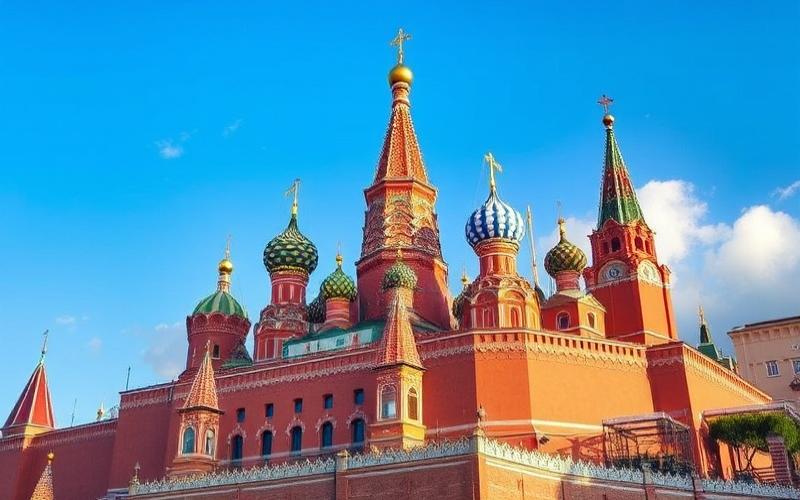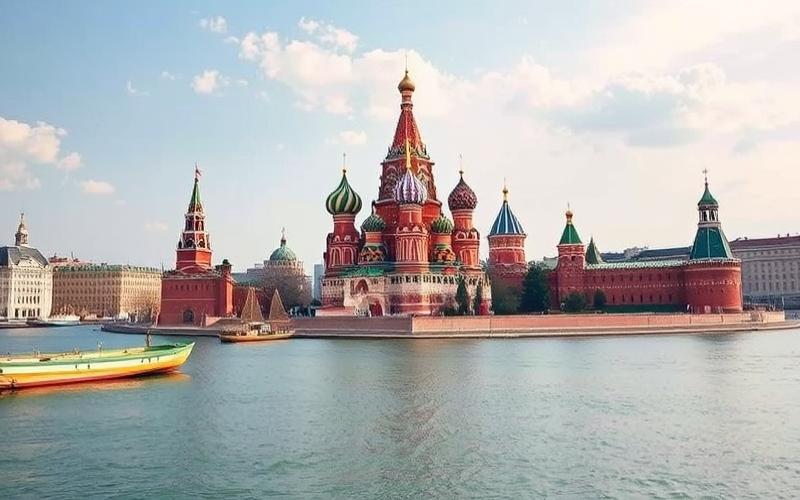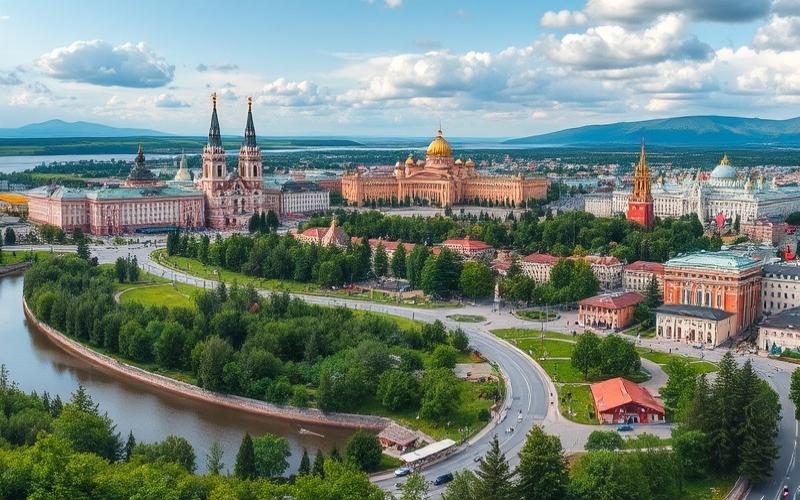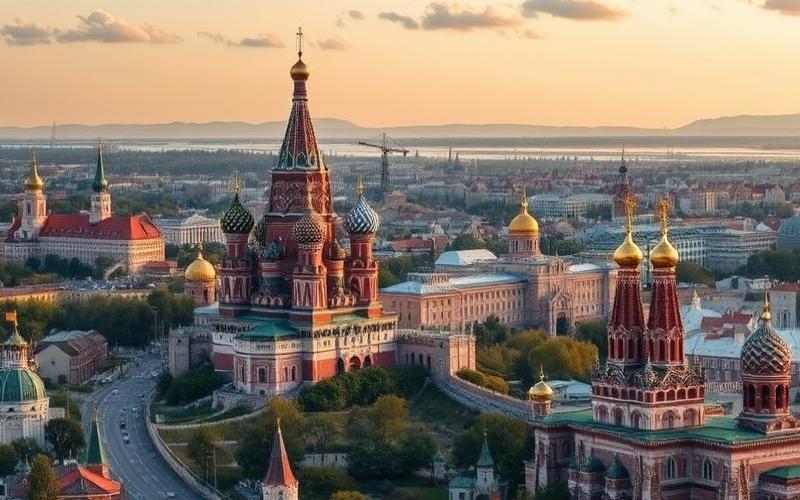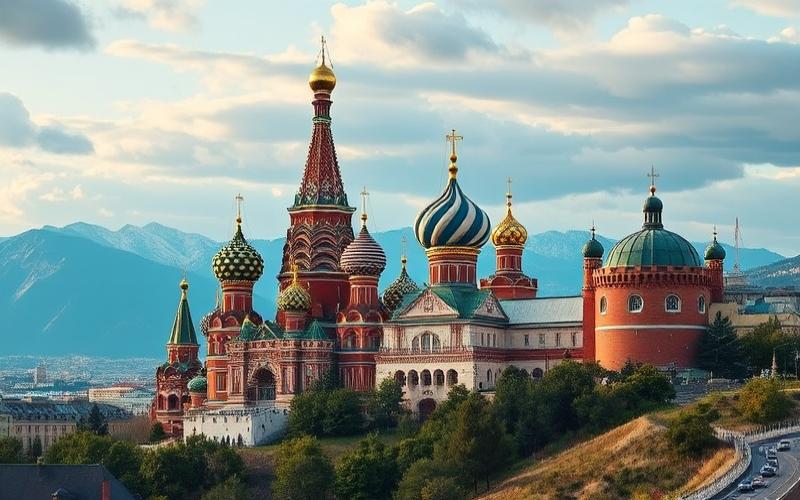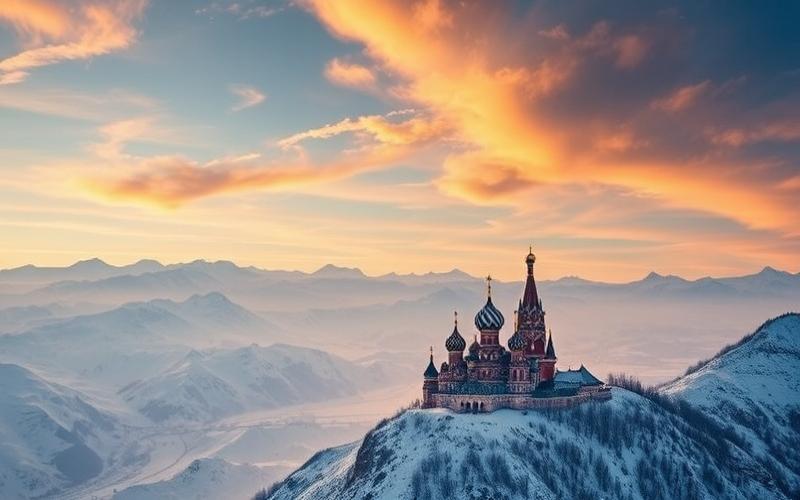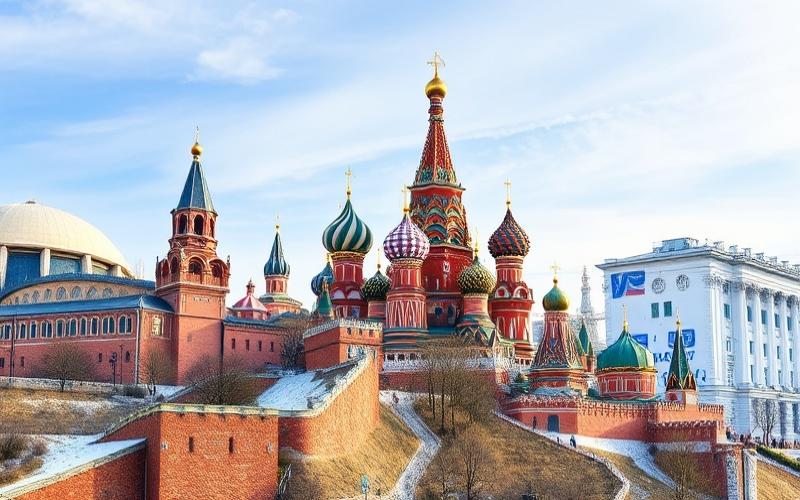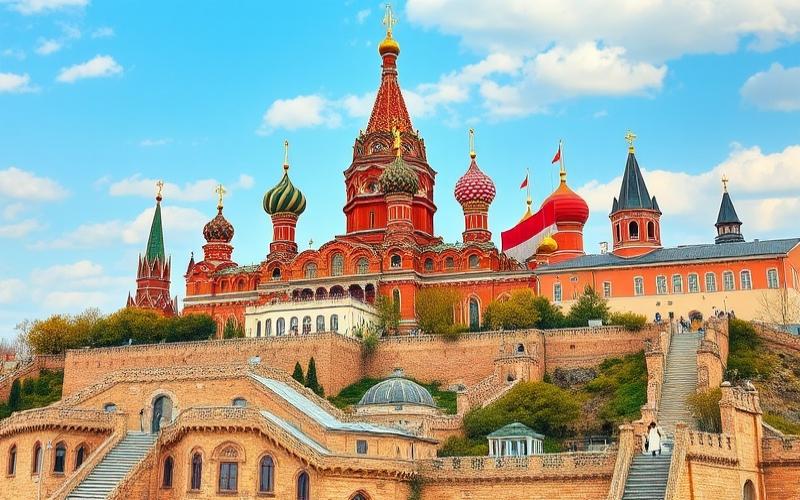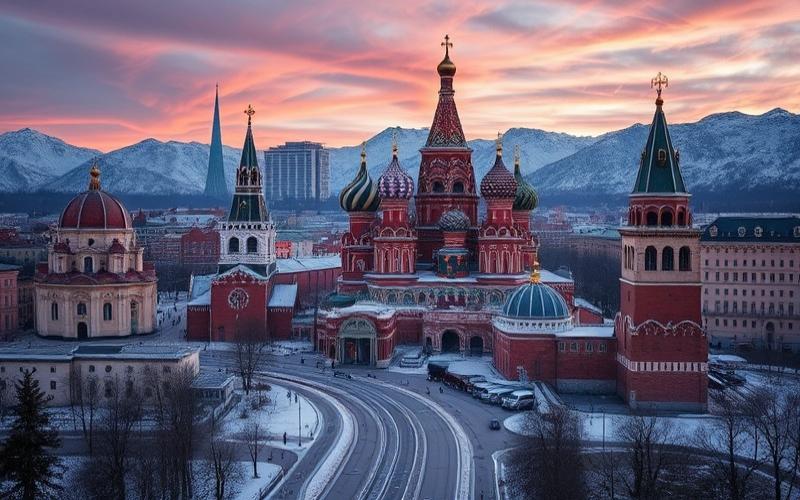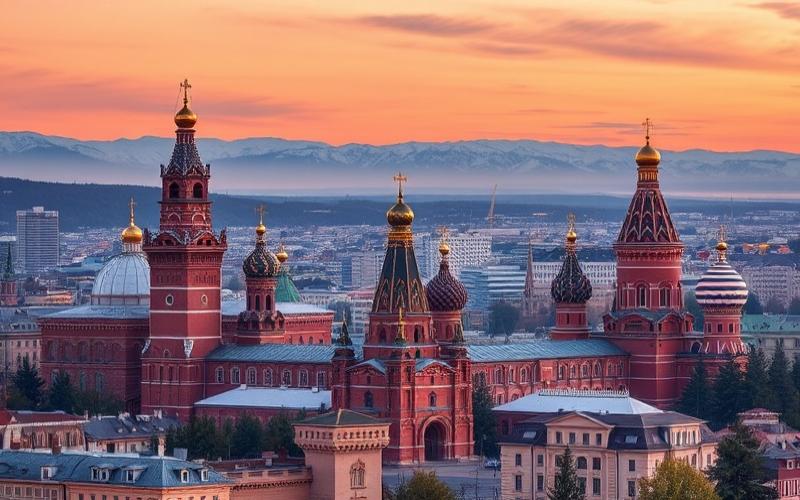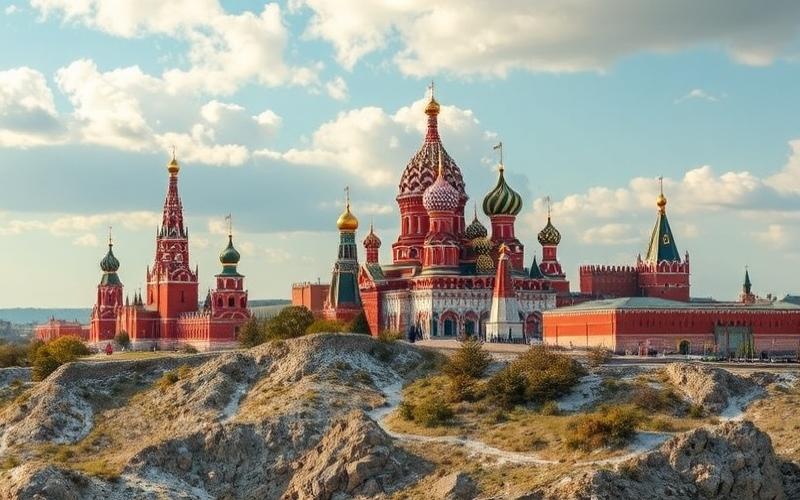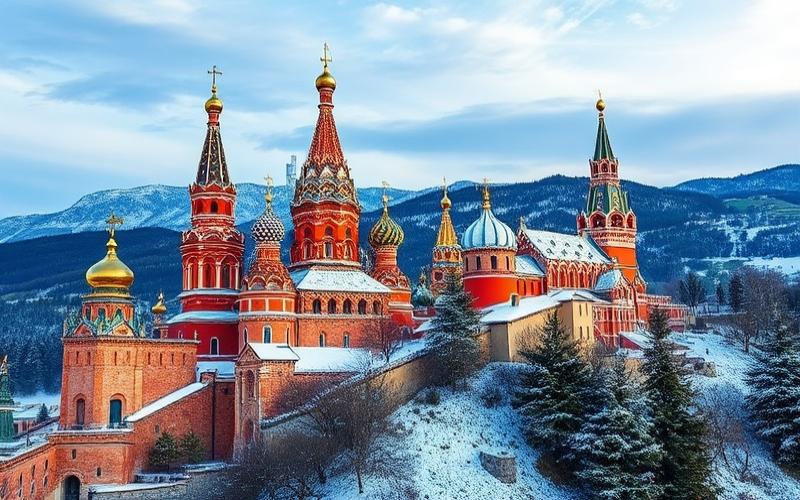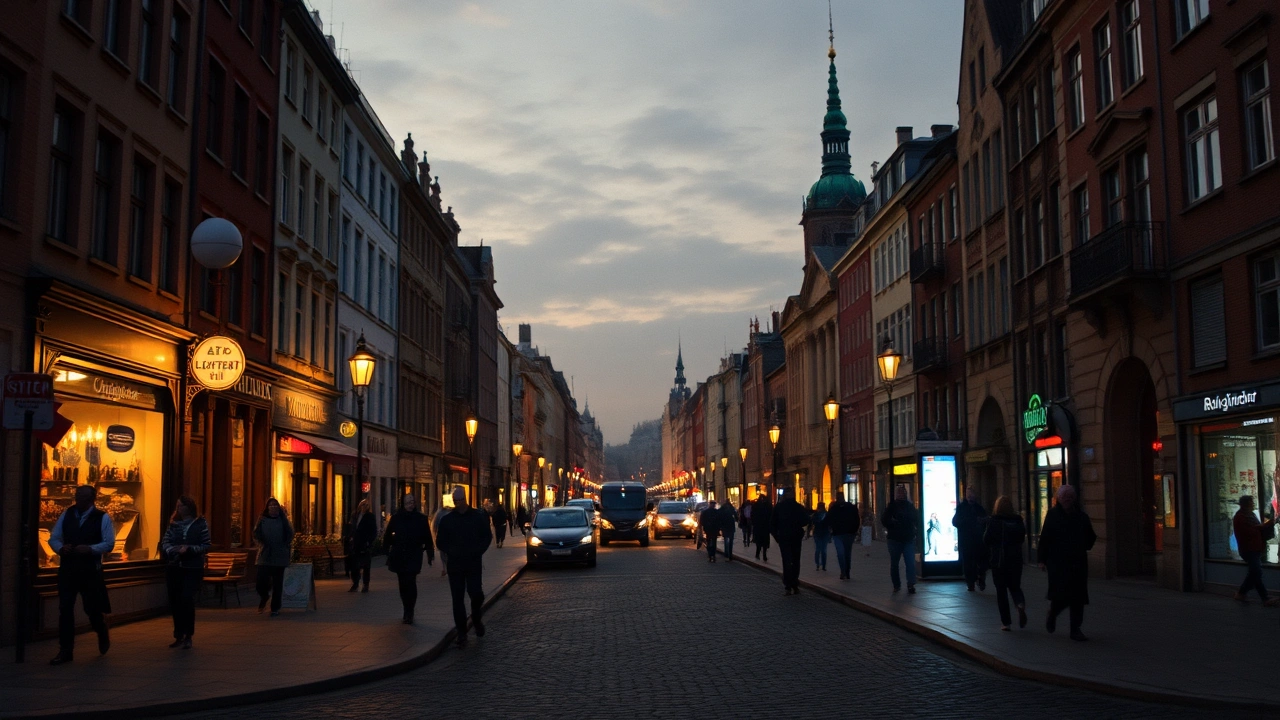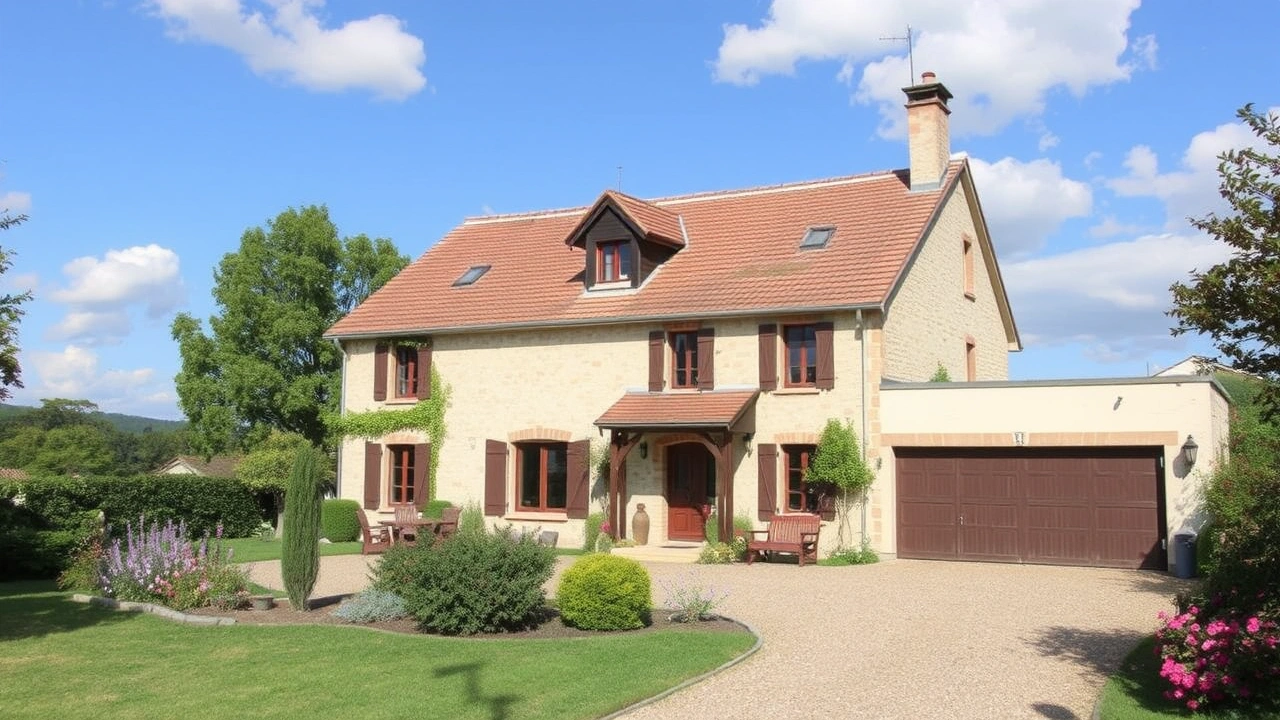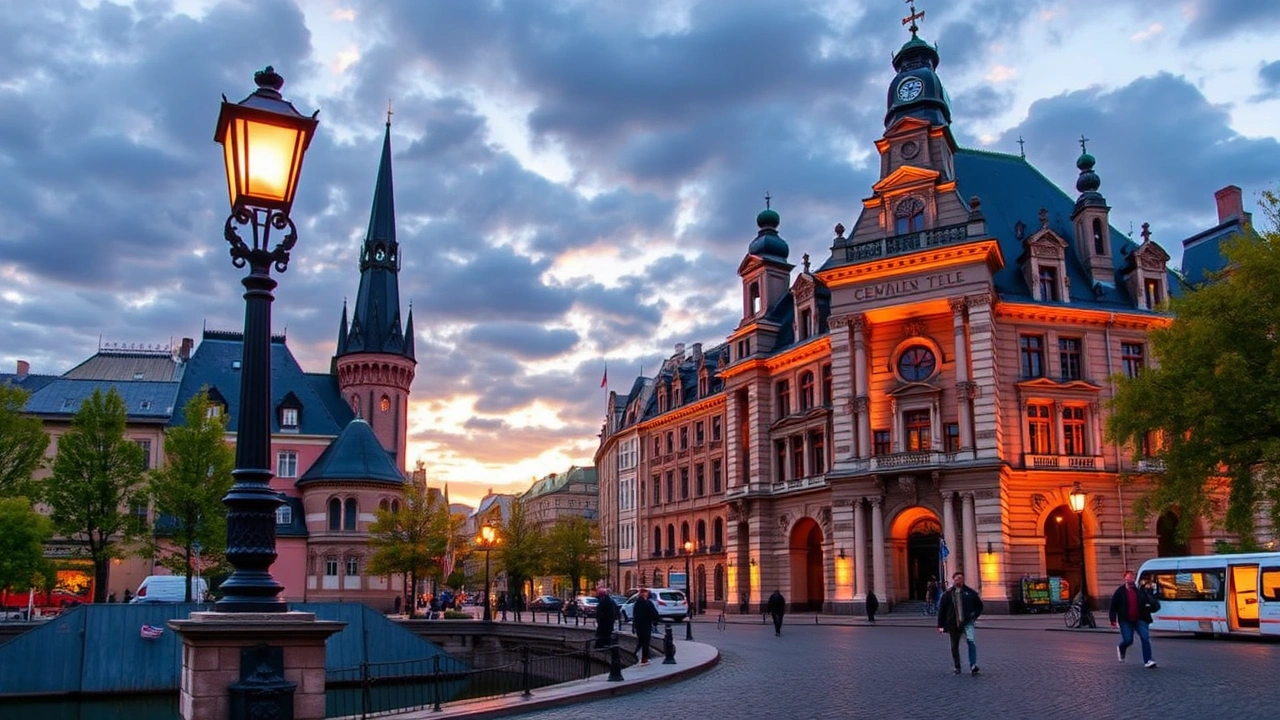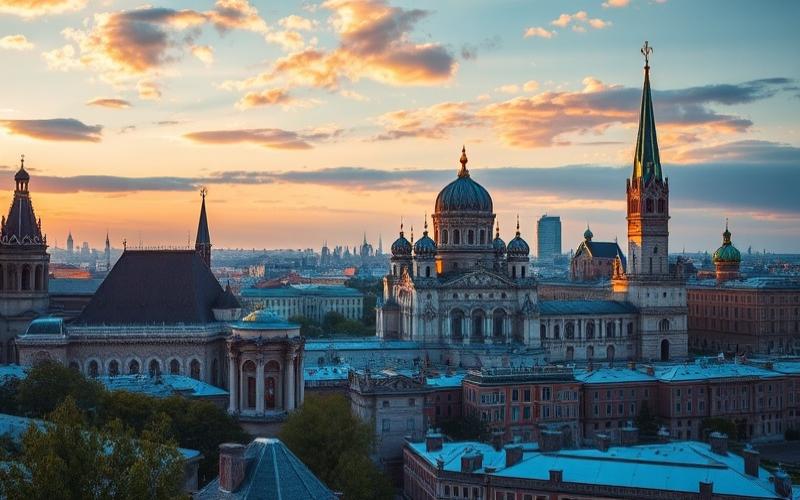
 Published on and written by Cyril Jarnias
Published on and written by Cyril Jarnias
Navigating the complexities of local religious practices can be challenging for expatriates in Russia, a country where cultural and spiritual traditions are deeply rooted in daily life. This article aims to provide an essential guide to understanding and respecting these rites, from Orthodox ceremonies to more contemporary rituals. Ensuring better harmony within the local community and avoiding cultural missteps thus becomes not only a matter of courtesy but also a necessity for creating more authentic and rewarding connections. By exploring the subtleties of Russian religious beliefs and customs, expatriates can transform their immersion experience into a highly enriching cultural adventure.
Russian Religious Practices and Their Impact on Daily Life
Main Religions Practiced in Russia
- Orthodox Christianity: Majority religion (approximately 43% to 47% of the population). The Russian Orthodox Church plays a central role in the country’s spiritual, cultural, and political life.
- Islam: The country’s second religion, practiced by about 11% to 20% of the population according to estimates, particularly among Tatars, Bashkirs, Chechens, and other groups from the Caucasus and Volga regions.
- Buddhism: Mainly present in Buryatia, Kalmykia, and Tuva. A minority religion but recognized as one of the traditional religions.
- Judaism: A small but historically significant community, with a presence in major cities and active cultural life.
Influence on Cultural and Social Traditions
- Orthodox Christianity: Major influence on arts, architecture (cathedrals, monasteries), family values, and rites of passage (baptism, marriage, funerals).
- Islam: Visible impact on culinary traditions (halal), holidays, mosque architecture, and community life in certain regions.
- Buddhism: Influence on local rituals, art, and festivals in Buddhist regions.
- Judaism: Cultural presence through institutions, museums, and holidays celebrated in certain communities.
Major Religious Holidays and Their Celebrations
| Religion | Main Holiday | Local and National Celebrations | Impact on Holidays and Family Customs |
|---|---|---|---|
| Orthodoxy | Easter, Christmas (Jan. 7) | Masses, processions, family meals, decorated eggs | Orthodox Christmas and Easter influence official holidays, major family gatherings |
| Islam | Eid al-Fitr, Eid al-Adha | Collective prayers, festive meals, charity | Holidays in some republics (Tatarstan, Bashkortostan), gift exchanges, Ramadan fasting |
| Buddhism | Sagaalgan, Tsagaan Sar | Prayers, temple visits, offerings | Celebrated locally, family rituals |
| Judaism | Hanukkah, Passover | Prayers, ritual meals, candles | Private or community celebrations in major cities |
Important Places of Worship to Visit
- Orthodoxy: Cathedral of Christ the Savior (Moscow), Trinity Lavra of St. Sergius monastery, churches of St. Petersburg.
- Islam: Moscow Cathedral Mosque, mosques of Kazan and Grozny.
- Buddhism: Ivolginsky Datsan (Buryatia), khurul of Kalmykia.
- Judaism: Moscow Choral Synagogue, Jewish Museum and Tolerance Center.
Influence on Daily Life
- Social Behaviors: Respect for elders, importance of family, hospitality (strongly marked by Orthodoxy and Islam).
- Dress Codes: Modest attire recommended in Orthodox and Muslim places of worship; headscarves for women in some mosques and churches.
- Dietary Practices:
- Orthodox: Regular fasts (especially before Easter and Christmas), prohibition of meat or dairy products at certain times.
- Muslims: Observance of halal, prohibition of pork and alcohol, Ramadan fasting.
- Buddhists: Some practice vegetarianism during holidays.
- Jews: Observance of kashrut in practicing communities.
Practical Tips for Expatriates
- Learn about major religious holidays and their dates to adjust activities and professional or friendly relationships.
- Respect dress codes and customs when visiting places of worship (cover your head, remove shoes if necessary).
- Be mindful of dietary specifics when invited to practicing families’ homes.
- Observe etiquette rules (do not photograph without permission in churches, mosques, or synagogues).
- Participate, when possible, in local holidays or celebrations to better understand the culture and build connections.
- Adopt a respectful attitude, avoid sensitive topics related to religion in conversations, especially in professional contexts.
Key Takeaways
Religious diversity in Russia profoundly shapes customs, holidays, and social life; to integrate, open-mindedness and respect for local traditions are essential.
Good to Know:
In Russia, religious celebrations like Orthodox Easter and Christmas influence holidays and family customs, while iconic places of worship, such as the Cathedral of Christ the Savior in Moscow, offer insight into traditions. Expatriates can better integrate by respecting social behaviors such as restraint during Ramadan in Muslim regions or by familiarizing themselves with Orthodox fasting.
Major Religious Holidays and How to Integrate as an Expatriate
Main Religious Holidays in Russia and Their Celebrations
| Holiday | Significance | Main Celebrations | Associated Customs | Cultural Importance |
|---|---|---|---|---|
| Orthodox Christmas | Birth of Christ according to the Julian calendar (January 7) | Midnight Mass, church prayers, traditional family meal after fasting | Prior fasting, lean dishes, religious songs, exchange of greetings “Khristos rozhdaetsya!” | Less celebrated than Easter but marks the end of the winter Lent |
| Orthodox Easter | Resurrection of Christ | Night service (“Easter service”), blessing of food (painted eggs, kulich) | Painting and blessing eggs, preparation of kulich and paskha (cheese dessert), greeting “Khristos voskres!” | Major religious holiday; spiritual and popular symbol of renewal |
| Epiphany | Baptism of Christ | Special Mass; immersion in blessed icy water | Blessing of waters; bathing in rivers or fountains despite the cold | Strengthens faith through a strong physical act; important collective moment |
| Maslenitsa | End of pagan winter / beginning of Christian Lent | Popular festivals with games, public performances | Mass consumption of blinis (pancakes), burning of effigy symbolizing winter *Festive sharing before fasting* | Important transition between winter and spring |
Detailed Customs by Holiday:
- Orthodox Christmas:
- Strict fast until the religious service.
- Meal mainly composed of grains (kulebyaka), marinated vegetables.
- Modest gift exchange.
- Traditional songs (“kolyadki”).
- Orthodox Easter:
- Holy Week preceded by a long fast where meat/animal products are prohibited.
- Easter vigil with candlelit procession around churches.
- Specific greetings: “Khristos voskres!”, response “Voistinu voskres!”
- Epiphany:
- Solemn blessing of outdoor waters by priests.
- Ritual bath in icy water for spiritual purification.
- Maslenitsa:
- Festive week before Lent: each day dedicated to a specific activity or culinary theme around blinis.
Practical Tips for Expatriates Wishing to Participate Respectfully:
Attending religious services is generally welcome. Opt for modest attire covering arms/legs. For women: headscarf advised when visiting an Orthodox church.
Respect dietary fasting periods if invited to share a family meal: avoid meats/dairy during these sacred times.
During ritual greetings (especially at Easter), respond according to the local formula to show your integration (“Voistinu voskres!”).
Participating in local events like Maslenitsa can be done freely; observing then joining games/festivities is appreciated but remain respectful towards religious symbols or burned effigies.
Observe without photographing or filming during certain sacred rites unless expressly permitted.
Appropriate Attire During Religious Holidays:
- For Men
- Modest clothing
- Long pants
- Head uncovered
- For Women
- Long dresses or covering skirts
- Arms covered
- Headscarf when entering a church
- To Avoid
- Casual attire like shorts/t-shirts
- Overly bright colors or provocative patterns
Recommended Behaviors for Better Acceptance:
- Arrive punctually to ceremonies/community events
- Adopt a discreet and respectful attitude during rites
- Ask a local for advice before any active participation
It is crucial to scrupulously observe respect for local beliefs, especially during liturgies or public processions to establish a harmonious climate with your Russian hosts.
Deep understanding and adaptation to culinary customs – such as sharing kulich at Easter or collective tasting of blinis during Maslenitsa – strengthen your integration within the local community.
Good to Know:
To participate in religious holidays in Russia, such as Orthodox Christmas and Easter, it is advisable to attend religious services and respect dietary traditions like fasting; also ensure to wear modest and respectful attire during these events. Expatriates are encouraged to join local Maslenitsa celebrations, marked by blini tastings and outdoor games, while remaining open and respectful of cultural beliefs to build connections with residents.
Behavioral Codes and Adaptations for Expatriates in Russia
Main Behavioral Codes for Expatriates in Religious Contexts in Russia
- Always adopt a respectful and discreet attitude in places of worship.
- Avoid any gesture or word deemed inappropriate, such as speaking loudly, laughing, or using your phone.
- Do not take photos without prior permission.
Gestures to Avoid and Prefer According to Religion
| Religion | Forbidden Gestures | Recommended Gestures |
|---|---|---|
| Orthodox | Crossing the space in front of the altar; touching sacred objects without invitation; entering bareheaded (men) or in short skirts (women) | Make the sign of the cross upon entry; light a candle; greet discreetly |
| Muslim | Entering with shoes in the prayer hall; touching the Quran if non-Muslim; standing in front of someone praying | Remove shoes before entering the mosque; wear covering clothing |
| Jewish | Touching Torah scrolls without the rabbi’s invitation; talking during collective prayer; entering bareheaded (men) or with uncovered arms (women) | Wear a kippah (men), cover shoulders/women during services |
| Buddhist | Pointing at a Buddha statue; turning your back to main statues; walking directly on ritual mats | Bow slightly before the spiritual master; walk around stupas clockwise |
Appropriate Attire to Adopt
- Orthodox places: modest and covering clothing. Women often invited to cover their head with a scarf.
- Mosques: arms and legs covered for all, women veiled. Prefer neutral colors.
- Synagogues: elegant but modest attire. Men usually wear a kippah, women avoid short skirts and low-cut tops.
- Buddhist temples: loose clothing, never tight or provocative.
Important Rituals to Respect or Avoid
- Arrive a few minutes before the start of a religious ceremony to absorb the context and discreetly observe what local worshippers do.
- Refrain from eating, drinking, or chewing gum during any presence in a sacred place.
To Do:
- Observe carefully how Russians present at religious events behave before acting yourself
- Politely ask for advice if uncertain about an appropriate gesture
- Greet soberly with a slight bow rather than a handshake
Not to Do:
- Get too close during collective prayers
- Interrupt someone engaged in an individual ritual
Necessary Adaptations According to Coexisting Religious Context in Russia
- Learn a few key Russian words related to religious practices (“thank you,” “excuse me,” “may I?”)
- Scrupulously respect specific times related to religious holidays – some places may be closed to foreign visitors on those days
- Be prepared to remove your shoes when asked
- Keep your hands visible during exchanges with religious officials to avoid any cultural misunderstanding
Absolute respect towards all visible forms of rites: never ridicule or comment negatively on these traditions even if they seem surprising from a Western perspective.
Good to Know:
In Orthodox places of worship, it is important for women to cover their heads and avoid positions seen as disrespectful; during Muslim ceremonies, removing shoes and dressing modestly are widely respected practices. Familiarize yourself with customs specific to each religion, such as not turning your back to the altar in an Orthodox church or avoiding touching sacred objects in a Buddhist temple.
Disclaimer: The information provided on this website is for informational purposes only and does not constitute financial, legal, or professional advice. We encourage you to consult qualified experts before making any investment, real estate, or expatriation decisions. Although we strive to maintain up-to-date and accurate information, we do not guarantee the completeness, accuracy, or timeliness of the proposed content. As investment and expatriation involve risks, we disclaim any liability for potential losses or damages arising from the use of this site. Your use of this site confirms your acceptance of these terms and your understanding of the associated risks.

